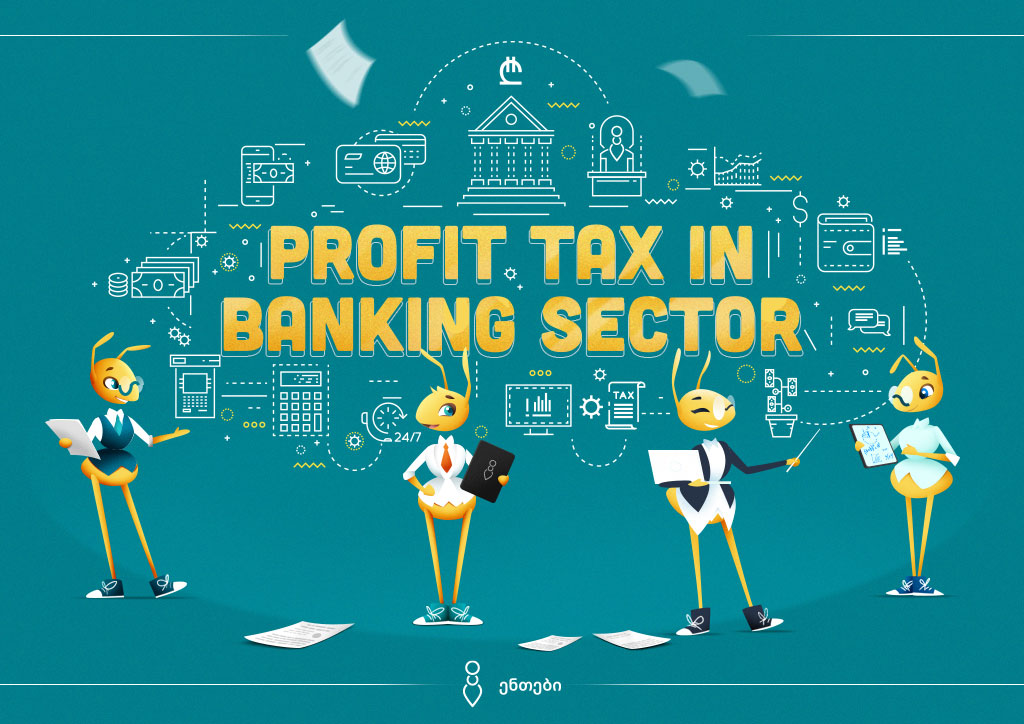
In Georgia, vast majority of companies are on so called “Estonian Model” of profit tax. This means that companies do not pay any profit tax until they distribute profits to owners. The latter model is one of the unique models in the world and encourages companies to reinvest their profits in business development and therefore save profit tax, rather than distribute dividends. Banks, on the other hand, pay profit taxes regardless of dividend distribution. In this article, we will be discussing practical aspects of profit taxation in the banking sector.
For the purposes of comparison, first we will discuss how profit taxation works in other sectors.
How is profit tax calculated in non-banking industries?
Upon profit distribution, for example payment of dividends, companies must pay profit and dividend taxes. It should be noted that dividend distribution from one Georgian resident entity, which is on so called Estonian Model, to another such entity can be done tax-free (in most cases). Profit and dividend taxes are usually paid when distributing profits to individuals or foreign entities. For non-banking sector companies profit tax comprises 15%, while dividend tax comprises 5%.
For example, during the year a company generated profit of 1,000 GEL and decided to fully distribute the amount as dividends to a shareholder. In this case, from 1,000 GEL only 807.5 GEL (1,000 x 85% x 95%) is paid by the company to the shareholder and the remaining 192.5 GEL is paid as dividend and profit taxes. If a company decides not to distribute profits but to reinvest and use them for business development, then the company will not pay any profit or dividend taxes.
How is profit tax calculated in banking industries?
Profit tax for banks (as well as credit unions, microfinance organizations and loan providers) represents 20%, unlike profit tax for other industry entities, for which profit tax is usually 15%. However, it should be noted that banks don’t pay dividend taxes (from the profit earned during 2023 and subsequent periods), which is 5% for entities in other industries.
To calculate profit tax, banks calculate “taxable profit”, which is derived by deducting various expenses from revenues. It should be noted that some revenues do not participate in calculation of profit tax. For example, Interest earned from debt securities issued by a Georgian enterprise and listed on a recognized stock exchange of a foreign country are not subject to profit taxes. Usually, such activities that the state intends to foster are sometimes exempt from profit tax.
Also, some expenses are not taken into account for profit tax calculation purposes, e.g. expenses not related to the entity’s economic activity as well as representative expenses above a certain limit (above 1% of the previous calendar year’s revenues) are not deducted from revenues for deriving taxable profits.
For example, during the year a bank generated profit of 1,000 GEL. This profit includes 200 GEL interest income derived from debt securities issued by a Georgian enterprise and listed on a recognized stock exchange of a foreign country. Besides, the profit also includes 300 GEL expenses which lack supporting documents, which means that in accordance with Georgian tax code, they are assumed to be unrelated to the bank’s economic activities. The bank decided not to distribute dividends to shareholders. However, regardless of whether the bank distributes dividends or not is irrelevant. Banks pay profit tax of 20% on taxable profits. In our example, taxable profit equals 1,100 GEL and is derived as follows: 1,000 – 200 + 300 = 1,100 GEL. Consequently, the bank must pay profit tax of 220 GEL (1,100 x 20%).